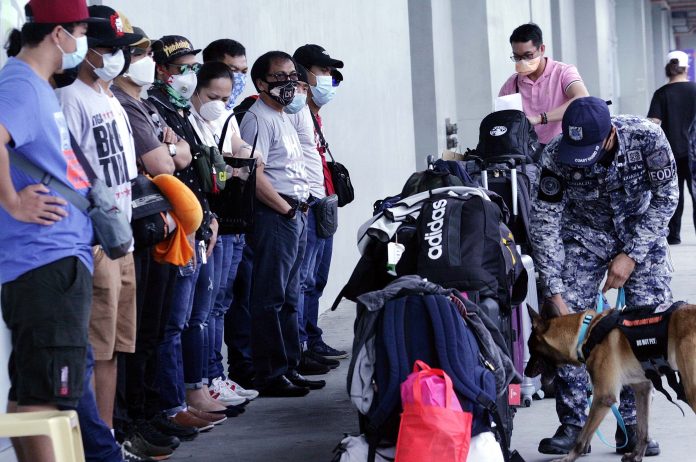EVEN as the state of its own finances is far from ideal because of the COVID-19 pandemic, the Catholic Church in the Philippines is living up to its commitment to help the needy by giving cash aid to displaced and distressed overseas Filipino workers (OFWs).
According to Father Restituto Ogsimer of the Migrants Ministry of the Catholic Bishops Conference of the Philippines (CBCP), the program will cover both land-based and sea-based OFWs who have lost their jobs due to the coronavirus pandemic.
While the Church’s financial assistance to them starting this month will be modest— 5,000 pesos for the land-based and 4,000 pesos for sea-based OFWs — and will cover only those who did not get any assistance from the government, what is important is that the displaced workers would have money that could tide them over while they wait for jobs and livelihood opportunities to come their way after the lockdown.
The Church will not only be giving immediate cash assistance to distressed OFWs, as it is also considering putting up a micro-finance program for them.
Apart from these, also on the drawing boards is a community-based support system for returning OFWs and their families.
The project calls for Church communities to adopt an OFW family to assure them of support at this time of crisis. This is a collective endeavor of several dioceses, religious orders and the migrants and refugees section of the Vatican.
As part of its over-all assistance to OFWs, the Church is also urging the government to take firm action against what it termed as “demonization” of returning OFWs.
At the same time, Father Ogsimer said, government at the national and local levels must stop discrimination against returning OFWs who are required to undergo a two-week quarantine period upon their arrival to ensure that they do not carry the coronavirus.
What’s worrisome, the priest said, is that returning OFWs are “stigmatized” by some public officials especially at the local level.
News reports indicate that in some cases, buses transporting OFWs who wanted to return to their homes in the provinces were stopped from doing so by local officials who feared that they could be infected by the coronavirus.
In some cases, some LGUs also require returning OFWs to undergo a second round of facility-based quarantine before being allowed to go to their respective homes. This is an added burden for OFWs who want to be with their families and loved ones amid the public health crisis.
The priest pointed out that national officials should closely coordinate with local government units so that such instances of overzealousness and misplaced fear on the part of local officials will not happen again.
The total number of OFWs worldwide has already reached 10 million, or a tenth of the total Philippine population.
With economic downturn likely to take place in countries adversely affected by COVID-19, we can expect more OFWs to come home in droves.
That means the government must be able to help the displaced OFWs find decent jobs here to support their families.
The Philippine government has launched a long-term “Back to the Province” program aimed decongesting Metro Manila. But if the returning OFWs cannot find work, whether in the urban areas or in the countryside, then government must extend every possible help to them.
The least we can do for them is to show compassion and understanding for the sacrifices they have made for their families and for the nation as a whole, since their remittances have kept the Philippine economy on an even keel for decades now.
The Catholic Church has taken the right step in helping returning OFWs adjust to changed conditions under the pandemic lockdown and even beyond. This is an act of kindness and benevolence that our OFWs will certainly appreciate as they strive to provide for their families and improve their quality of life in the years ahead.
Ernesto M. Hilario writes on political and social justice issues for various publications in the Philippines. The views and opinions expressed in this article are those of the author and do not necessarily reflect the official editorial position of LiCAS.news.









